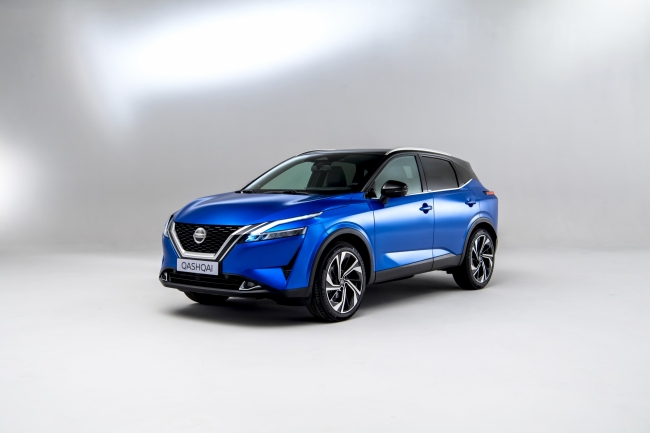2 minute read
Nissan Qashqai to use new aluminium production process
Made in Sunderland, Nissan’s new Qashqai will be the first model built in Europe to utilise a significant number of lightweight aluminium panels. The bonnet, doors and front wings will be stamped from aluminium alloy, which makes the Qashqai body 60kg lighter than the previous version. This improves efficiency on emissions and helps accommodate additional technology, including an electrified powertrain.
As reported by Zenoot last year, a £52m investment in aluminium production at Nissan’s Sunderland plant included the installation of a second extra-large press line and the cyclone – a recycling facility that blasts scrap metal out at 150km an hour and can handle more than seven tons of metal an hour, ensuring less waste and a greener production process.
As bonnets and doors are stamped into shape, scrap material is shredded and extracted, keeping aluminium grades separate. The separation ensures that Nissan can return high-quality scrap to suppliers. The suppliers turn the separated aluminium scrap into aluminium alloy sheets and redeliver them to Nissan for use in production.

Nissan’s new Qashqai will be the first model to use its new aluminium production process following a £52m investment at its Sunderland plant / Picture: Nissan GB
This closed-loop recycling system reclaims scrap aluminium, reducing waste and CO2 emissions. This contributes to Nissan’s goal of achieving carbon neutrality across the company’s operations and the life cycle of its products by 2050.
Alan Johnson, vice president manufacturing at Nissan Sunderland, said: “We continue to look for ways to make both our vehicles and our manufacturing process more sustainable and the use of lightweight aluminium in the new Qashqai is a great example.
“We continue to improve the efficiency and sustainability of our manufacturing operations and Sunderland will play a key role in meeting the company’s commitment to carbon neutrality.”
Recycling scrap aluminium saves more than 90% of the energy needed to create a comparable amount from raw materials. As part of Nissan’s effort to achieve carbon neutrality, by the early 2030s every new Nissan vehicle offering in key markets will be electrified.
Nissan recently announced plans for a major expansion to its renewable energy generation at Sunderland with a proposed 20MW solar farm extension. If approved, the 37,000-panel extension would result in 20% of the plant’s energy coming from all onsite renewables, enough to build every single zero-emission Nissan LEAF sold in Europe.